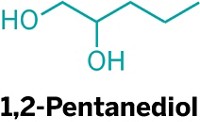Advertisement
Grab your lab coat. Let's get started
Welcome!
Welcome!
Create an account below to get 6 C&EN articles per month, receive newsletters and more - all free.
It seems this is your first time logging in online. Please enter the following information to continue.
As an ACS member you automatically get access to this site. All we need is few more details to create your reading experience.
Not you? Sign in with a different account.
Not you? Sign in with a different account.
ERROR 1
ERROR 1
ERROR 2
ERROR 2
ERROR 2
ERROR 2
ERROR 2
Password and Confirm password must match.
If you have an ACS member number, please enter it here so we can link this account to your membership. (optional)
ERROR 2
ACS values your privacy. By submitting your information, you are gaining access to C&EN and subscribing to our weekly newsletter. We use the information you provide to make your reading experience better, and we will never sell your data to third party members.
Business
Firms claim biobased routes to ethyl acetate and glycols
Greenyug and S2G work with manufacturing partners to prove their processes can compete with petroleum
by Melody M. Bomgardner
June 27, 2016
| A version of this story appeared in
Volume 94, Issue 26
Producers of consumer and industrial products will have new options for biobased intermediates—if scale-up efforts for ethyl acetate and glycols prove economical in today’s cheap fossil-fuel environment.
Greenyug, a Santa Barbara, Calif.-based technology developer, says it will build an industrial-scale ethyl acetate facility that will use corn ethanol as a feedstock. Separately, Vancouver, British Columbia-based S2G BioChem says it is successfully producing glycols made from nonfood sugars at a contract manufacturing site.
The Greenyug facility will be located adjacent to an Archer Daniels Midland corn processing facility in Columbus, Neb. ADM will supply ethanol for Greenyug’s process, which uses a dehydrogenation catalyst that works in the liquid phase to make ethyl acetate.
The renewable ethyl acetate can compete on price with synthetic ethyl acetate made by Celanese and Eastman Chemical, according to the company. A solvent, it is used in adhesives, paints, nail polish removers, and coffee and tea decaffeination.
Meanwhile, S2G has begun commercial-scale production of biobased glycols at the Memphis site of Pennakem, a specialty chemical firm that makes furans from agricultural waste. The S2G process hydrotreats waste-derived sugars to make a mixture of ethylene and propylene glycols.
Output from the facility has been sold to an industrial resin plant and is being evaluated by other industrial customers, according to S2G. The company claims to be competitive with petrochemical glycols, even at today’s low oil and gas prices.




Join the conversation
Contact the reporter
Submit a Letter to the Editor for publication
Engage with us on Twitter